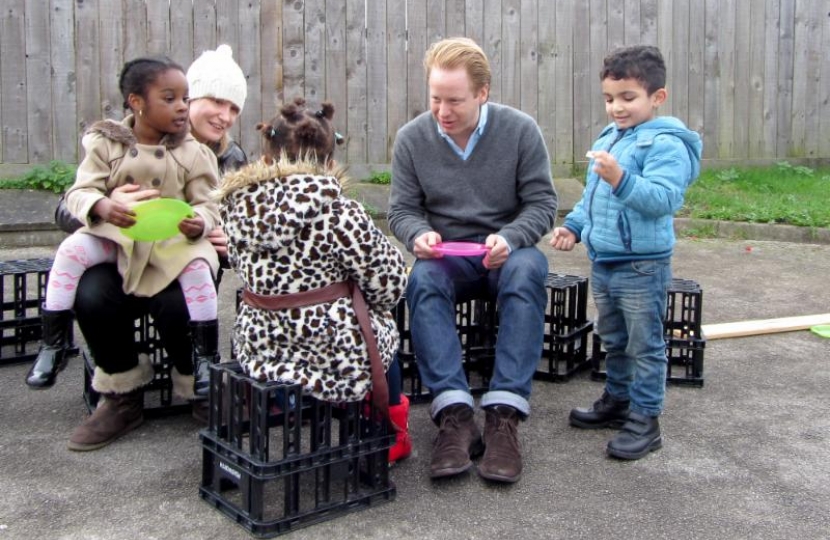
Parent chat can be conversational death - especially for those without children. But suddenly, of course, once you have one cooing and crying yourself, you not only have the same discussions but find an immediate and very real interest in all those subjects that before were - how shall I put this - of only theoretical interest.
Prince among these issues is childcare. A mysterious thing to many non-parents, talk of nurseries, childminders and Children's Centres could as well be quantum physics to many not yet initiated into the joys of child-rearing; yet to parents, childcare is one if not the most money-grabbing, time-consuming and emotion-wrenching thing with which they have to deal.
Childcare enables parents return to work but also, when done well, helps children develop. So much so simple, and so good. The bare truth is that in whatever form it takes, it is also blindingly expensive - so much so that you have to be earning well in order to have anything left over having paid the nursery bills. That is an enormous injustice to parents on low wages, especially single parents who want to go back to work. It is also not fair on children, especially vulnerable children, who do far better at school if they have had a good grounding in a nursery beforehand.
Squaring this circle is a challenge - and expensive - but something the government has been determined to do, even though money is very, very tight.
The first challenge has been to reduce the cost of childcare - which is the single biggest problem for working families. My colleague, Liz Truss, who was the minister responsible, put in place some big reforms of the childcare sector, which mean that for the first time in over fifteen years the cost of childcare has begun to come down: nursery costs fell by 6% on average last year; childminder costs by 11%.
So far so good. But even with costs falling, they are still very high. That is why back in 2010 one of the first things I voted for on your behalf was to give fifteen hours free early learning provision a week for all three and four year-olds; now two year-olds from low income families are eligible as well.
There is more to come. Next year, all working parents save the very richest will have up to £2,000 tax-back on childcare costs - money that will make an enormous difference to families on low and middle incomes across Ipswich.
Finally, with much encouragement, schools are starting to offer many more before and after-school activities, providing 'wrap-around' care at a relatively low cost.
The benefits of this are pretty clear but they are most important for people on low incomes, who before were excluded from having decent childcare. The result is that great nursery and childminder providers are springing up all over Ipswich - not just in the more well-heeled parts, but especially in the areas where previously there was little for parents to use. Last week I visited one setting, The Triangle Nursery, run by the Bows and Arrows, all of whose nurseries are rated 'Outstanding' by Ofsted. All of Bows and Arrows nurseries are in the more deprived parts of the town, giving childcare and early learning of a quality that was previously available only to the better off.
Here's the bit that should interest non-parents and parents alike: these reforms are giving opportunities to people previously left behind, simply because they had low incomes. Social justice through childcare: now that is exciting, for it will change the chances for many families in Ipswich, in turn making our town a fairer place.
